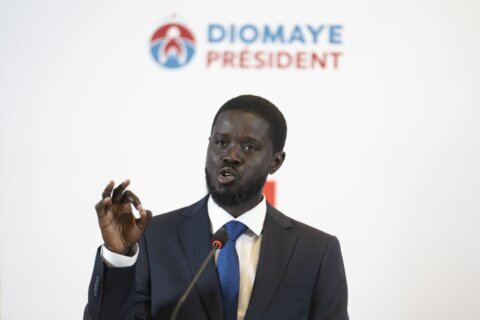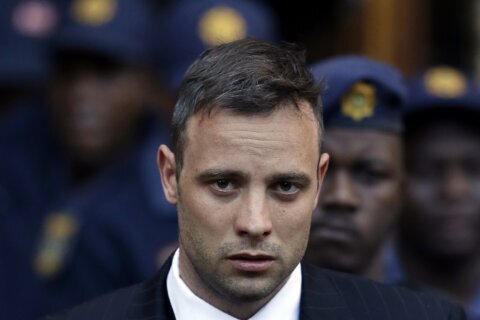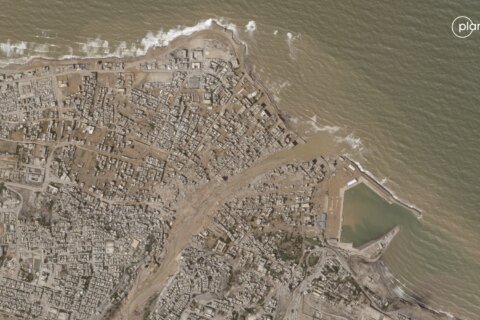OUAGADOUGOU, Burkina Faso (AP) — The atrocities are rampant: A 25-year-old woman abducted at night from her home, pinned down and raped by a jihadi while another held her baby. Child soldiers pillaging villages and women killed for identifying their attackers, their bodies left on the road.
These are some of the abuses committed in Burkina Faso by Islamic extremists linked to al-Qaida and the Islamic State group documented in a report released Monday by Human Rights Watch.
As violence intensifies in the war-weakened nation, jihadis are raping and killing civilians and using child soldiers at increasing levels, the international rights group said.
Civilians are also threatened by unlawful killings and enforced disappearances by government security forces and government-allied militias engaged in counterterrorism operations, said the report.
“The pace of attacks and consequent degradation in Burkina Faso is as dramatic as it is worrying. People’s lives are being shattered as the violence intrudes in more and more regions of the country, and threatens neighboring states,” Corinne Dufka, West Africa director for Human Rights Watch told The Associated Press.
Based on interviews with 83 survivors, witnesses and others between September and April, the report records dozens of rapes, hundreds of killings and the destruction of villages including the looting of health centers and destruction of water and telecommunications infrastructure by extremists across the country.
For six years Burkina Faso has struggled to stem the growing jihadi insurgency that has killed thousands and displaced nearly 2 million people. In January, the democratically elected president was ousted by mutinous soldiers who promised to make security a top priority. However, extremist attacks are intensifying and spreading.
Much of the recent violence is taking place in the Center North region where jihadis have pushed people from their homes. Dozens of women there told Human Rights Watch they were brutally raped while gathering firewood, on their way to or from the market or while fleeing attacks on their villages.
One 37-year-old woman described being struck 25 times and being called a fake Muslim before she was raped.
Many women are in need of psychological support but have received no assistance from international aid groups, according to the head of a local women’s group who spoke on condition of anonymity for her safety.
Children, many between the ages of 13 and 15, are also increasingly forced to become fighters, used by jihadis to burn villages, guard captives and rob civilians, especially of cattle, said the report.
Last year AP documented one of the first visible uses of child soldiers in the conflict, during the deadly attack on Solhan village in the Sahel province, where at least 160 people were killed.
Government security forces are also accused of committing abuses while trying to stem the violence. Human Rights Watch documented 42 alleged summary executions and 14 enforced disappearances of civilians and suspected jihadi fighters by state security forces. The majority of the victims were ethnic Fulani, who are generally Muslim and have been increasingly targeted by the military and local defense militias because they are suspected of being affiliated with the Islamist groups, say rights organizations.
Some of the alleged abuses occurred within the context of major counterterrorism operations, said the report. In January, 22 people were allegedly killed and six kidnapped during a government ground and air offensive in Yattakou village in the Sahel’s Seno province, Abdoul Kadry Ousmane the village chief told the AP. The AP cannot independently verify the allegations.
The government didn’t respond to requests for comment by AP. However, in a statement in April responding to allegations that more than 100 civilians were killed by security forces in Oudalan province in the Sahel, the army said it was conducting all missions with a “high awareness of the respect of human rights” and would investigate the incident.
Yet the United Nations says allegations of abuses during security operations are concerning, said Seif Magango, Africa spokesman for the U.N. Human Rights Office.
As the violence on both sides escalates, residents are caught in the middle. In June, Azera Dogon’s 16-year-old son was killed by jihadis while looking for water in her village in the north. She buried him next to the house before fleeing to a makeshift displacement site in Ouahigouya town. Now the mother of 10 wants to return home but says the situation is too unpredictable.
“You hear jihadists are in the north, in the south or other parts and you’re told not to go places,” said Dogon. “It’s becoming very hard … No one knows what’s happening.”
Copyright © 2024 The Associated Press. All rights reserved. This material may not be published, broadcast, written or redistributed.







